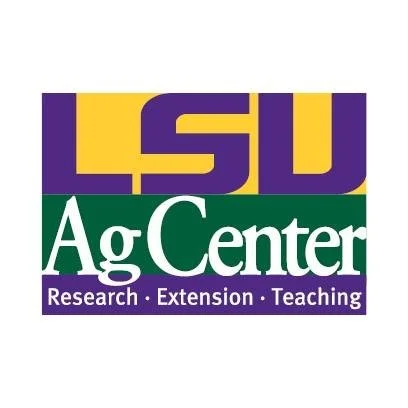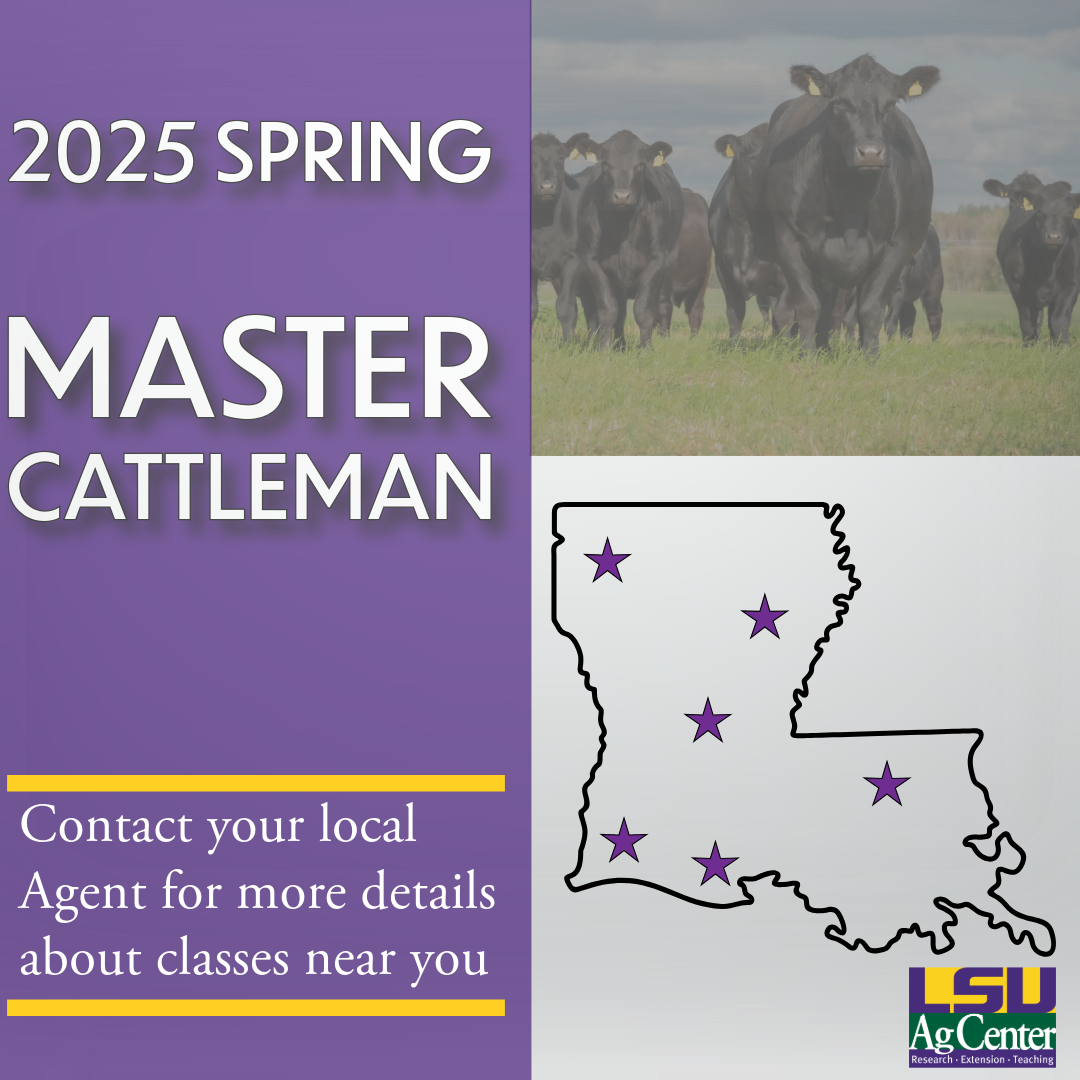Most action starts with a spark, a catalyst to do something. Louisiana 4-H was igniting that spark for seventh and eighth graders during the first Spark Action Change Summit held Feb. 20 to 22 in Baton Rouge.
Read MoreThe LSU AgCenter is once again gearing up for AgMagic, its signature educational event that takes visitors on an interactive journey through Louisiana agriculture. AgMagic events will be held in Baton Rouge and the Greater New Orleans area in March.
Read MoreOn the fifth day of the LSU AgCenter Livestock Show,LSU AgCenter and 4-H leadership came together to commend a significant donation to the Louisiana 4-H Foundation.
Jeannette Thomason donated $250,000 for renovations of bathhouses at the Grant Walker 4-H Educational Center in Pollock, which hosts 4-H camp programs.
Read MoreThe LSU AgCenter is hosting an upcoming summer internship for juniors, seniors and grad students.
This is a paid summer internship with 20 positions available throughout Louisiana.
Read More4-H offers Louisiana youth a wealth of personal growth opportunities that assist in developing well-rounded adult members of society a few years down the road. Yet sometimes navigating the actual roads to camps and workshops can be difficult for those who lack reliable transportation. That’s where 4-H supporters have stepped up.
Several parishes have acquired vans thanks to local support, said Lanette Hebert, 4-H coordinator for the LSU AgCenter Southwest Region.
Read MoreFor entomologist Aaron Ashbrook, the insect-rich environment of Louisiana is a fascinating place to work.
“We have more insects in this climate,” he said. “Subtropical areas, like we are in, that warmer temperature and humidity allows for insects to be alive longer, allows them to reproduce more and have more generations per year.”
Read MoreGrowing up in Acadia Parish, Kathryn LeBlanc had a dream of one day being a veterinarian. Her family was involved in rescuing dogs, and the idea of making a career that would allow her to help animals in need intrigued her.
Read MoreThe optional Supplemental Coverage Option (SCO) endorsement provides additional coverage for a portion of an individual producer’s underlying crop insurance policy deductible. The basic operational mechanics of the SCO endorsement follows/ ‘mirrors’ underlying policy coverage. If the producer purchases a yield protection (revenue protection) policy, then SCO covers yield loss (revenue loss). The amount of coverage depends on the liability, coverage level, and approved yield for the underlying policy.
Read MoreThe Enhanced Coverage Option (ECO) allows producers to supplement their current underlying individual insurance coverage and provides area-based coverage for a portion of the deductible of the producer’s underlying policy in a manner like the Supplemental Coverage Option (SCO). ECO utilizes the same expected and final area yields, projected and harvest prices, and payment factors as SCO but covers a band from 86% (where SCO coverage ends) up to 90% or 95% of expected crop value. Like SCO, ECO is based on a producer’s underlying insurance coverage.
Read MoreThere’s nothing quite like pecans. With their rich, buttery flavor, these nuts are a staple of Louisiana culture and cuisine.
If you’d like to produce your own pecans, November through March is an ideal time to plant these trees. There are a few considerations to take into account first.
Read MoreA $22 million project involving the LSU AgCenter has been paused while the Trump administration reviews spending at the U.S. Agency for International Development (USAID).
LSU is part of the Feed the Future Climate Resilient Cereals Innovational Lab, which researchers at Kansas State University lead. It seeks to make cereal crops – such as rice, wheat, miller and sorghum – more readily available to those at risk of hunger, according to an AgCenter blog post.
Read MoreLouisiana produces 850 million pounds of seafood each year, according to the Louisiana Seafood Promotion & Marketing Board. Much of that includes crustaceans like crawfish, shrimp, and crab. It follows that Louisiana also produces a lot of seafood waste once those crustaceans are processed. However, researchers at LSU’s School of Nutrition and Food Science have developed a way to turn a smelly byproduct of the seafood industry into a way to make other foods last longer on the shelf.
Read MoreThe LSU AgCenter is excited to host six Master Cattleman Programs throughout the state this spring. The Master Cattleman Program is designed to help beef cattle and forage producers enhance their production and profitability. Participants must complete 30 hours, which includes 10 three-hour blocks of instruction, to become a certified Louisiana Master Cattleman.
Read MoreThe 2025 LSU AgCenter State Livestock Show, set for Feb. 11-18 at the Lamar-Dixon Expo Center in Gonzales, has been dedicated to Donaldsonville native Frank Sotile.
He exhibited his first 4-H steer at the LSU show in 1950 when he was 9 years old, sparking a lifetime of dedication to the organization, according to the AgCenter.
Read MoreThe Hessian fly, one of the most serious pests of small grain crops worldwide, poses a significant threat to winter wheat grown in the eastern United States. Clemson University scientists are leading efforts to combat this issue.
This research supports the mission of Clemson’s Advanced Plant Technology Program and is part of a broader effort across the southeastern U.S. Similar research trials are ongoing at Louisiana State University, Texas A&M University and the University of Georgia.
Read More













